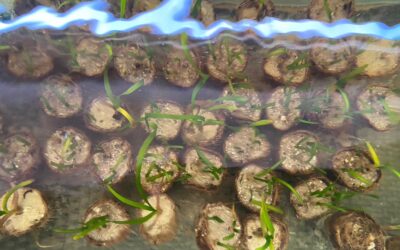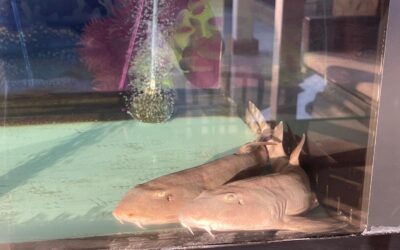Bamboo sharks are fascinating creatures that play a vital role in the health of our marine ecosystems. Found primarily in the shallow coastal waters of the Indo-Pacific region, including areas around Thailand, Malaysia, and the Philippines, these small sharks thrive in coral reefs and sandy or muddy bottom habitats. Their unique adaptations and behaviours make them vital to maintaining the balance of the marine environment.
Habitat and Distribution
Bamboo sharks are well-adapted to the diverse habitats of the Indo-Pacific. They are commonly found in coral reefs, where their distinctive patterns help them blend in with the surroundings, making it easier to hunt for small fish and invertebrates. Their ability to thrive in both sandy and muddy bottoms allows them to occupy a range of niches within these ecosystems. This adaptability ensures their presence in various marine environments and contributes to the overall biodiversity of the region.
Ecosystem Balance
Bamboo sharks, as bottom-dwellers, play a crucial role in maintaining the balance of the marine ecosystem. They help control the population of small fish and invertebrates, preventing any single species from dominating the reef environment. No ecosystem, whether on land or underwater, can survive without its apex predator. For example, if we kill all the lions in Africa, the herbivores (gazelle, zebra, etc.) will increase in numbers with no predators to keep them in check, leading to the consumption of all vegetation and trees, turning green land into desert. The same principle applies to sharks in the ocean.
As apex predators of the shallow reefs in Phuket, bamboo sharks feed on small fish that eat corals, supporting biodiversity and ensuring the health and stability of coral reef ecosystems. By keeping prey populations in check, bamboo sharks contribute to a balanced and thriving marine environment. When shallow reefs die, it is more often due to a lack of predators rather than pollution or anchoring.
They are Harmless to Humans
Despite the fearsome reputation of sharks, bamboo sharks are not a threat to humans. These small, docile sharks are known for their gentle nature and typically pose no danger to divers or swimmers. Their small size and preference for invertebrates and small fish make them a fascinating and safe species to observe in their natural habitat.
Educating the public about the harmless nature of bamboo sharks helps dispel myths and promotes a better understanding of these important marine creatures. Oceans For All offers unique, interactive bamboo shark education experiences at Pullman Phuket Panwa Beach Resort and JW Marriott Khao Lak Resort & Spa through the Shark Nursery project.
Reproduction
Bamboo sharks reproduce by laying eggs, often referred to as “mermaid’s purses.” These eggs are encased in a leathery, protective shell and are typically attached to rocks or coral. After an incubation period of several months, the baby sharks hatch fully formed and ready to fend for themselves. This reproductive strategy ensures the survival of the species in diverse marine environments. At Oceans For All Foundation’s Shark Nurseries, we hatch and nurse baby bamboo sharks, carefully nurturing them until they are strong enough to re-shark the reefs.
Growth and Development
Bamboo sharks grow slowly, and reach a maximum length of about 1 metre (3.3 ft). Their slow growth rate means they are particularly vulnerable to overfishing and habitat destruction. Protecting their habitats and ensuring sustainable fishing practices are essential for the conservation of these unique and important sharks. Our efforts at the Shark Nurseries aim to support the growth and development of bamboo sharks, contributing to the preservation of this vital species.
Bamboo Shark Barbs
Bamboo sharks have small barbs, or sensory organs, around their mouths. These barbs are highly sensitive and help the sharks detect prey hidden in the sand or mud. This adaptation is particularly useful in their bottom-dwelling habitats, allowing them to locate and capture small invertebrates and fish with precision.
The “Walking” Shark
Remarkably, bamboo sharks have the ability to survive outside of water for a period, allowing them to “walk” between tide pools using their strong pectoral fins. This adaptation enables them to move between habitats during low tide and increases their chances of finding food and avoiding predators.
Understanding the role of Sharks in our waters is key to supporting and maintaining biodiversity and therefore bolstering the health of our marine environment. To this end, the foundation’s Shark Nursery project has hatched and introduced in excess of 200 juvenile bamboo sharks into the waters surrounding Phuket and Khao Lak, in the last 2 years.
You can be a part of our next Re-Sharking event! Be sure to stay updated with our upcoming events by subscribing to our monthly newsletter or following us on our Facebook and Instagram pages.



